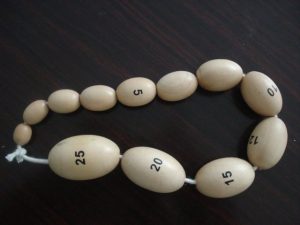Is Bigger Better When It Comes to Testicles?

As I was being interviewed for a recent Tonic/VICE article by author Grant Stoddard about testicular implants, an interesting point was raised: Does the ole “bigger is better” notion that we typically associate with homes, jewels and penises also apply to testicles?
Looking Pretty Down South
Let’s start with a little perspective here. We humans do well with testicle size, ranking somewhere in the middle of the pack among mammals. Just so you know, the largest testicles on earth are found in right whales. They weigh 1 ton and they make 1 gallon of sperm-filled-semen. Ours weigh an ounce or two.
It’s All Relative
You also may not know that ball size (relative to body weight) correlates with promiscuity in a species. Chimpanzees have large balls relative to body size (0.3 percent by weight) and are a highly promiscuous species. Gorillas, although far larger creatures than chimps, have much smaller balls relative to body size (0.02 percent by weight) and tend to hang in committed relationships.
However, the promiscuous partner is not the one you think…it’s the female! Female chimps typically mate with several male partners so there is rigorous competition among sperm to fertilize their eggs. The evolutionary response here is the usual “outnumber to outcompete” and has led to male chimps making more and more sperm to beat the rest of the pack to the egg. Hence, bigger testicles.
On the contrary, male gorillas have tightly controlled harems of female partners with very few extra-pair copulations (“affairs”). Since their sperm is not competing with anyone else’s, there’s little to no evolutionary drive for higher sperm numbers in gorillas for reproductive success. Hence, smaller testicles.
An Ersatz Bollock
As you might have guessed, we humans are somewhere in the middle. Most men have testicles that are two to three inches long and an inch or so wide, give or take. And there’s actually quite a bit of variation in normal testicle size among different ethnic groups. It’s also pretty common for the left testicle to hang lower in the scrotum than the right. More importantly, testicles that are much larger than normal, especially if they enlarge with time, are actually more cause for concern than honor and should lead the owner straight to the doctor’s office for inspection.
A medical evaluation can confirm or rule out a health condition responsible for changing the size of the testicles. Cancer is the biggest concern, although other medical problems can cause one or both testicles to enlarge. For instance, a varicocele — a swollen, twisted vein that develops in the scrotum — can cause one testicle (more often the left testicle) to look swollen, or lead to the development of a noticeable mass on the scrotum. Hydrocele, a swelling in the scrotum due to fluid collecting around one or both testicles, could be to blame; although hydrocele is more common in newborn boys, a small percentage of adult men can develop it. Another possible (and painful) explanation for enlarged testicles is testicular torsion, a twisting of the spermatic cord that cuts off blood flow to the testicles.
So bigger, although conceptually attractive, might not be better.
Does Having Bigger Balls Mean More Testosterone?
Testosterone is the primary sex hormone found in men. During puberty, testosterone plays an role in growing the penis and testicles. Although you might think that the bigger the balls the more male hormone being made, that correlation is weak at best. This is true mainly because sperm and precursor cells make up 80% of testis size; the hormone producing cells in the testis constitute the other 20%. So, you can’t really judge a man’s testosterone by the size of his balls.
Bottom line: The size of our family jewels may not personally reflect much of who we really are. It may be our sexual partners, over millions of years, that have had the largest influence on how big our balls are today. And, as a professional testicle guy, I would say that partners don’t think all that much about testicle size, especially when compared to the energy devoted to penis size.
My advice: Instead of sweating over them, enjoy them. To discuss testicles and testosterone levels with one of the country’s best-known male fertility and sexual health doctors, please contact The Turek Clinic.









